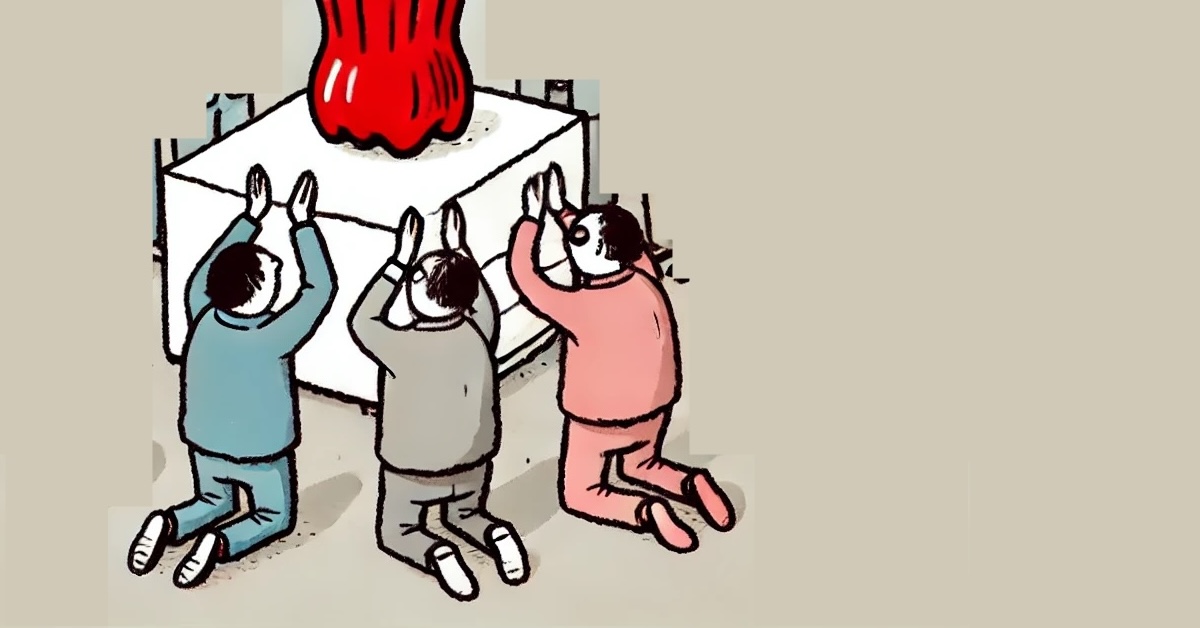
What’s a better product—Coca-Cola or Pepsi? Don’t worry, capitalism lets you decide. It’s simple: whatever you like more is best. If that’s too subjective, we can let the sales numbers settle it for us. Coca-Cola wins. End of story, right?
Capitalism loves to tell us the best ideas win. Survival of the fittest—except instead of nature’s brutal selection, it’s a relentless competition to see which multinational can give us Type 2 diabetes faster. Coca-Cola is the perfect capitalist success story: a global juggernaut, flooding the market with its sugary goodness. It wins because it sells the most, and it sells the most because it wins. A neat little self-fulfilling prophecy, really. But when you start to question whether this is the kind of “best” we really want, the cracks in capitalism’s logic become a little harder to ignore.
Coca-Cola vs. Water: The “Health is Wealth” Paradox
Let’s shift gears for a second. Instead of Coke vs. Pepsi, let’s ask the real question: Coca-Cola or water? If everyone who drinks Coca-Cola suddenly switched to water, what would happen? Well, for one, we’d probably see a steep decline in cases of insulin resistance, obesity, and trips to the dentist. Water, you see, has this magical ability to keep you alive without sending your blood sugar on a rollercoaster. But here’s the problem: water, in its natural state, is hilariously unprofitable. Imagine trying to slap a brand on something that literally falls from the sky – or better yet, is pumped straight from a polluted river in the south of England. Oh wait, Coca-Cola already did exactly that. Turns out, capitalism can even sell you your own dirty bathwater with a smile. But back to business: Coca-Cola is a capitalist dream. It’s a product that can be sold endlessly, marketed as happiness, and conveniently ignores the long-term damage it causes. In capitalism, you don’t need to be good for people, just good for business.
Success in Capitalism: Sugar Wins, Common Sense Loses
It’s this paradox that sticks with me: capitalism claims to reward the best ideas, but by what standard? Coca-Cola wins the day because it makes billions, not because it’s good for you. The system defines success as whatever can be monetized, and conveniently, the products that rake in the most money are dubbed “the best.” It’s a circular logic so airtight, it’s almost impressive.If more people drank water instead of Coke, the public health benefits would be obvious. But capitalism doesn’t care about obvious—it cares about profit. Coca-Cola is the champion because it plays the capitalist game flawlessly. So, the world keeps spinning, sugary drinks keep flowing, and we keep getting more TV ads with polar bears guzzling soda like it’s the nectar of the gods.
When Profit Beats Health Every Time
If we based success on quality of life, we wouldn’t even be having this debate. Water would win hands down. We’d be celebrating the falls-from-the-sky-stuff without the need for medical intervention. But no – capitalism isn’t about what’s good for you; it’s about what keeps the wheels turning. Coca-Cola dominates, not because it’s the right choice, but because it’s the most profitable one. The stock price is up, and who cares if our arteries are clogged? But success in capitalist terms isn’t about what’s good for people. It’s about what can be sold and resold, repackaged and rebranded, over and over again.
What’s “Good” is Whatever Capitalism Says It Is
Capitalism’s definition of “good” is perfectly circular: a product is good because it makes money, and it makes money because capitalism has decided it’s good. And yeah, sure, capitalism isn’t perfect. Water is wet, more at 11. We hear the same criticisms all the time—capitalism creates inequality, causes suffering, and rewards excess. But here’s the thing: what we want under capitalism isn’t necessarily what we need. And that’s the crux of the issue.
Wants vs. Needs: A Broken Compass
What we want—sugary sodas, cigarettes, fast fashion—often comes at the cost of what we need: clean water, health, and sustainability. Capitalism gives us what we ask for, but maybe the real problem is that we don’t know how to ask for what we need. History has shown that what we want is at least better than what others have wanted for us. So, here we are, in a world where the freedom to make bad choices reigns supreme. It’s far from perfect, but paraphrasing a famous alcoholic here: Capitalism is the worst system—except for all the others we tried. But what if we lived in a world where our needs—not our wants—determined what we get? What if we gave up our Coke, our cigarettes, our ability to download ringtones (dating myself here) at will? Who decides what we really need? It sounds like a nanny state at best and a dictatorship at worst. And even if we trusted some benevolent authority to make those calls, they’d be making decisions at scale—one size fits all. That’s a world that feels even less like freedom.
In the End, We’ll Keep Our Coke
The truth is, we’re not giving up our Coca-Cola anytime soon. We like what we like, even if it’s not good for us. Plain water will always be there, waiting – silent, unmarketed, and infinitely better for us. But capitalism will keep pushing Coke because, in this system, what sells is what wins. And we’ll keep drinking it, knowing deep down that maybe, just maybe, we’ve got it all wrong.

Playing around with creating concepts of a blog post (hah!) and then having AI flesh it out. Thoughts?